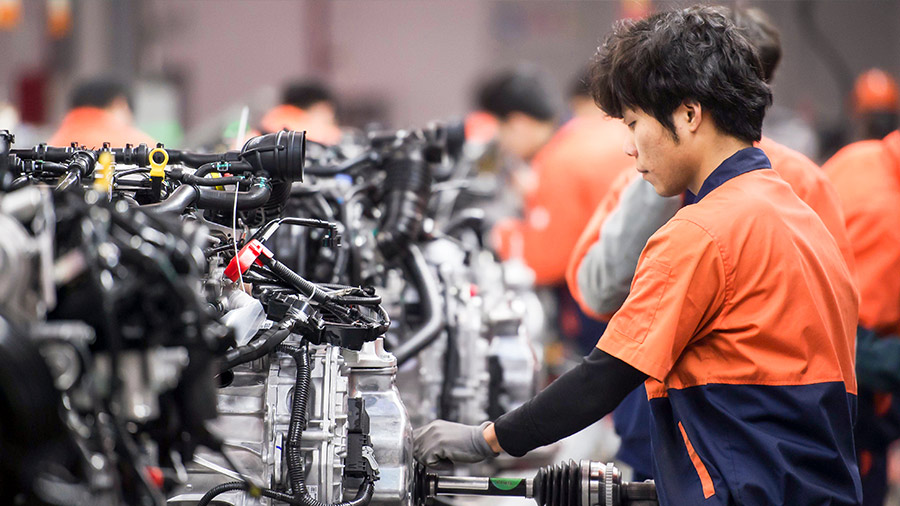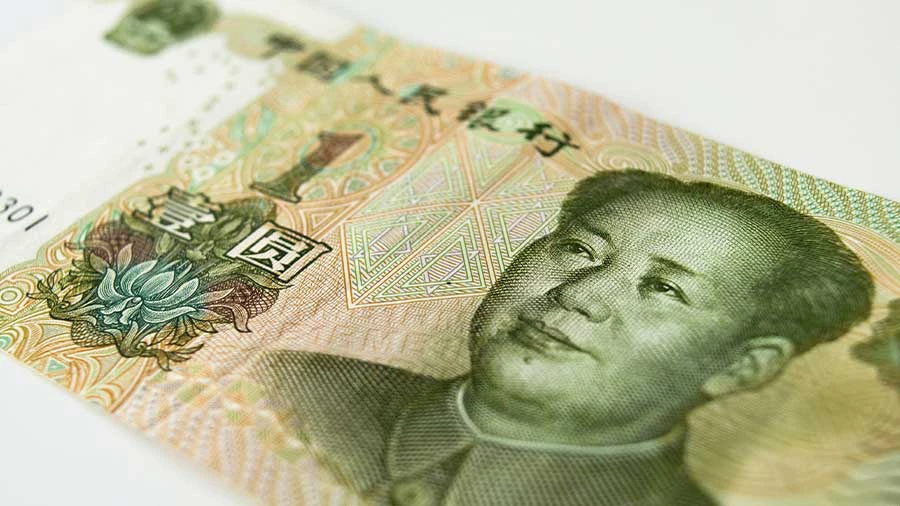"Metaverse" has become a new buzzword in China, bringing about a host of new and exciting business opportunities. Chinese technology companies have begun testing the water by developing metaverse-type apps, trademarking metaverse-related phrases, and investing in the VR/AR segment. In this article, we explore the development of the metaverse in China, highlighting the market's strengths and current trajectories, and paying particular attention to the most innovative tech companies in the field and the main government regulations to watch.
UPDATE: On November 1, 2022, the MIIT jointly released a 4-year action plan with five other regulators to integrate virtual reality tech with industrial applications. This action plan is regarded as China’s first national-level policy that supports the metaverse development in the country. While the policy does not explicitly mention the metaverse, it urges authorities to create the fundamental technologies that support immersive AR, VR, and mixed-reality experiences. The plan's top objective is to achieve significant technological advances in virtual reality by 2026. This calls for innovation in fields like full-body motion capture, gesture, eye, and expression tracking, and technologies for rendering graphics.
In China's marketplace, finding online accessibility is almost synonymous with being modern and innovative, giving rise to a slew of well-known digital giants. However, experts point out that the whole sector could be reaching a saturation point. Meanwhile, businesses in the digital realm find it challenging to constantly refresh their offerings or present unique propositions in terms of what and how they sell. For China, the internet is no longer a frontier to be conquered or a novel platform – for both individual consumers and institutional investors.
The creation of the metaverse perfectly matches the need for unseen 'newness' in the field, creating more opportunities for business expansion and consumer use.
What is the metaverse?
Once a niche concept that can be traced to the cyberpunk novel, Snow Crash, published in 1992, the metaverse has become a buzzword in the last few months and more so since Facebook rebranded itself as Meta on October 28, 2021.To explain in layman's terms, the metaverse is a virtual world that exists in parallel to the physical world. In the metaverse, greater overlap of our digital and physical lives is possible – in the work, socialization, productivity, shopping, and entertainment domains – and is enabled by certain advanced technologies, such as VR, AR, and MR. Businesses, investors, and developers predict it could form the next generation of the Internet.
Enabled by specific technologies, the metaverse opens new frontiers for businesses, investors, and developers in many ways. Chinese players are well aware of this, and they have clearly shown their willingness to venture into the virtual world – over 16,000 metaverse-related trademark applications have been filed.
Metaverse and the rise of the VR/AR segment
Unsurprisingly in China, a wide range of businesses have seized the chance to contribute to the growth of this new market. Chinese investors are seriously working virtual reality (VR) and augmented reality (AR) capabilities into their business models and product offerings, and businesses are developing software and hardware for these technologies.Indeed, while China’s tech sector has been experiencing a governmental policy crackdown, domestic VR/AR businesses have so far been unaffected. Six of China's tech giants – including Baidu Inc, Alibaba Group Holding Ltd, and Tencent Holdings Ltd (collectively known as BAT) – made it to the top 10 firms worldwide that filed the most VR/AR patent applications in the past two years. In 2019, most of these developments happened in the fields of retail shopping, education, gaming, marketing, information display, and industrial manufacturing.
By the end of 2020, China's VR industry alone accounted for about 44 percent of the global market, with an approximate value of US$8 billion. Because big Chinese firms lack the underlying technical expertise required to develop VR devices, these corporations instead pursue a different strategy – investing in startups. The idea is to wait for the dominant headset to emerge by extending its platforms to content developers.
In the meantime, another relevant niche has emerged: mobile VR, which represents a key facilitator for innovation in the market. Since the country has over 900 million smartphone users, making VR accessible through smartphones is a priority from a business standpoint.
On the other hand, while AR now generates less revenue than VR in China, the market portion is expanding at a faster pace. According to the Internet Society of China, AR revenues, which include hardware, software, content, and services, reached RMB 21.3 billion (US$3.09 billion) in 2021. Feeding this growth phase is China’s accessible technology environment – the country’s largest tech firms provide open platforms and tools for AR developers and content creators.
In recent years, several pieces of software and service vendors, such as Sight Plus, Hisense, and Mayitegong, have entered the AR market.
Chinese tech giants investing in the metaverse
Whether it is about creating a parallel, computerized version of reality, or enhancing the sensorial perception of human experience in the real world, both VR and AR technology represent the premises upon which China is strengthening its version of the metaverse – which is the natural next step for businesses and startups especially in (but not limited to) the tech world.According to a recently published report by Morgan Stanley, Chinese netizens seem to be particularly intrigued by the metaverse (in Chinese: 元宇宙 yuányǔzhòu), and leading Chinese tech firms have already begun to invest in a market that may be worth up to US$8 trillion in the future.
Baidu
Baidu was the first company to launch a metaverse app in December 2021, under the name “Land of Hope” (in Chinese: 希壤 xīrǎng), which signaled the entry of the Chinese tech giant into the global metaverse rivalry. Through the creation of avatars, the software allows users to engage in a virtual environment. The app debuted in January 2022, introducing users to several virtual scenarios that combine Chinese history and futuristic designs – a sci-fi-inspired version of the ancient Shaolin Temple is a brilliant example of this.Tencent
Tencent, the Chinese world-leading internet and technology company creator of WeChat, has taken several actions to make its social offerings more virtual – for example, with the launch on the QQ platform of a new feature called Super QQ Show, which introduced a 3D interactive space where users can interact and play games together. Sounds familiar? The idea was earlier launched by the company and restored with the necessity to resist upcoming competitors in the field.In 2022, an app called Jelly (in Chinese: 啫喱 zhě lí), which is developed and owned by Beijing Yidian Entertainment Technology Co., Ltd., allows users to create online avatars of themselves and engage with up to 50 pals. It surpassed WeChat to become the most downloaded app in China's iOS store on February 8, 2022, becoming the first social media app to beat WeChat in several years. Even though the program encountered delays and crashes due to the large number of users connecting at the same time, leading to the temporary suspension of new account requests, it still represents a valuable lesson for the tech giant on the direction where it is wiser to invest.
Byte Dance
The parent firm of TikTok, Byte Dance has designed two metaverse apps: Party Island (in Chinese: 派对岛 pàiduì dǎo), for the Chinese market, and Pixsoul for the Southeast Asian one. The two programs allow users to create virtual avatars with which they can communicate with their friends. The company clarified its vision for these projects, which are intended to represent an alternative to the metaverse since they are undergoing modifications and are only available with a unique invitation code.Chinese consumer behavior towards the metaverse
The metaverse continues to pique the imagination of Chinese consumers. According to Newzoo, 78 percent of them are interested in interacting within gaming worlds – in contrast with 57 percent in the United States and 47 percent in the United Kingdom. Moreover, data indicate that 82 percent of those who are interested in the sector also feel very optimistic about the metaverse's potential benefits, and again the numbers sharply surpass those in Western countries.In addition, virtual reality and virtual idols are already booming in China, comprising an industry that is worth RMB 51 billion (US$8 billion) and RMB 3.5 billion (US$548 million), respectively. Their success lies in the fact that Gen-Z consumers relate more easily to these intermediaries, who resemble anime characters that are familiar to them. Moreover, they are also a safer alternative for traditional influencers as they eliminate human errors and they are easier to deal with. This is the case for Ayayi, China’s first meta-human, who was launched in May 2021 by Ranmai Technology and who has already joined Alibaba, recently taking on the role of digital manager of Tmall Super Brand. Another example is Luo Tianyi, a 15-year-old virtual performer, whose Weibo account (@Vsinger_洛天依) reaches more than 5 million followers. In view of this, more companies and content-sharing platforms are employing this medium to attract younger generations of users.
Government regulations to watch
Since the start of the metaverse fever, several local governments, such as Shanghai, Wuhan, and Hefei, have started to include the topic in their government work reports for 2022.In October 2021, the China Institute of Contemporary International Relations (CICIR), a think-tank linked to the Ministry of State Security, issued a paper on the metaverse in China warning of the need for lawmakers to deal with virtual crimes. Similarly, in November 2021, the government of Zhejiang province organized a “metaverse industry development symposium”.
The topic has also been discussed during the Two Sessions (in Chinese: 两会 liǎnghuì). Specifically, Zheng Xinjian (郑新俭), director of the Fourth Department of the Supreme People’s Procuratorate, during a press conference stressed the importance of protecting users’ privacy and protection from rising online fraud related to the metaverse in China.
With reference to the VR/AR sector, in 2018, China's Ministry of Industry and Information Technology (MIIT) published its Guiding Opinions on Accelerating the Development of the Virtual Reality Industry, a roadmap for the industry that stresses the importance of R&D and content service provision as a foundation for VR development.
More recently, the Guangzhou Huangpu District and Guangzhou Development Zone jointly released Measures for Promoting the Innovation and Development of the Metaverse (also referred to as the “10 Metaverse Measures”), the first policy of its kind in the Guangdong-Hong Kong-Macao Greater Bay Area. Some of the highlights include:
- Promoting innovation agglomeration and encouraging enterprises to form clusters and become "highly specialized";
- Supporting technological leadership, where institutions and businesses should work hand in hand to solve technical bottlenecks;
- Strengthening the protection of intellectual property rights;
- Increasing talent acquisition; and
- Establishing a "Metaverse Industrial Fund" to attract social capital.
At the state level, China has not taken any explicit steps to oppose the expansion of the sector in China nor expressed complete support for the metaverse.
Considering that China may want to establish its own version of the metaverse that is suited to its economic ambitions, policy directives, and development of homegrown technical expertise, and matches the aspirations of its people, we can cautiously foresee that there will be more concrete regulations to guide the development of the metaverse, like what has happened in the fintech sector. Investors and relevant stakeholders are suggested to pay close attention to the regulatory developments in this area.
This article was first published on April 20, 2022, and last updated on November 8, 2022.




















